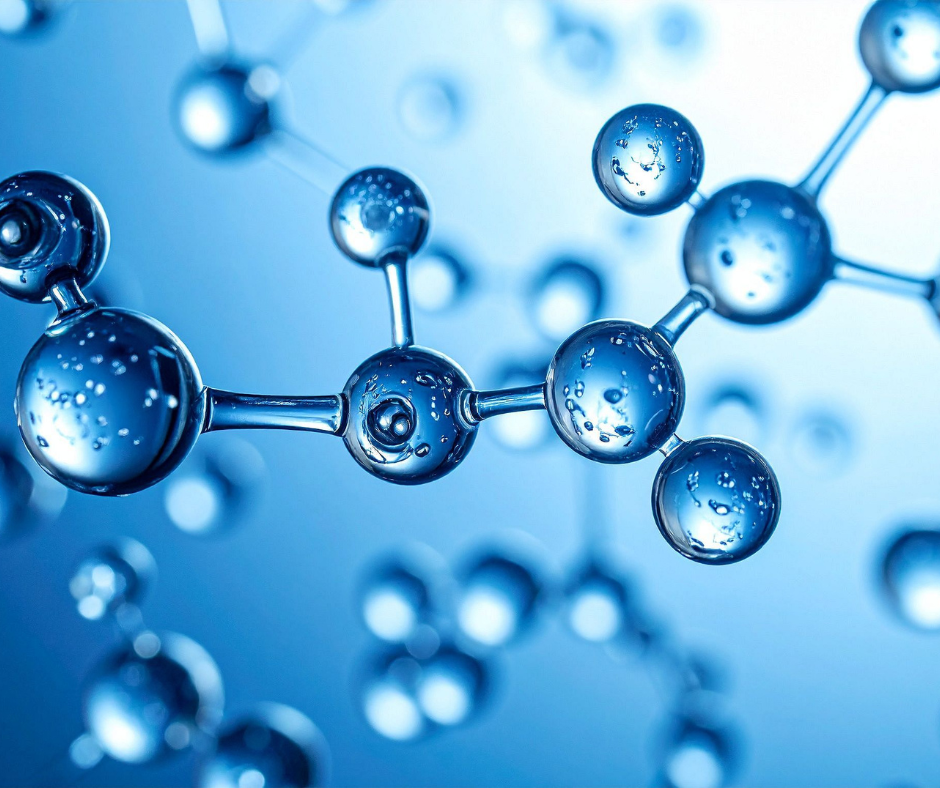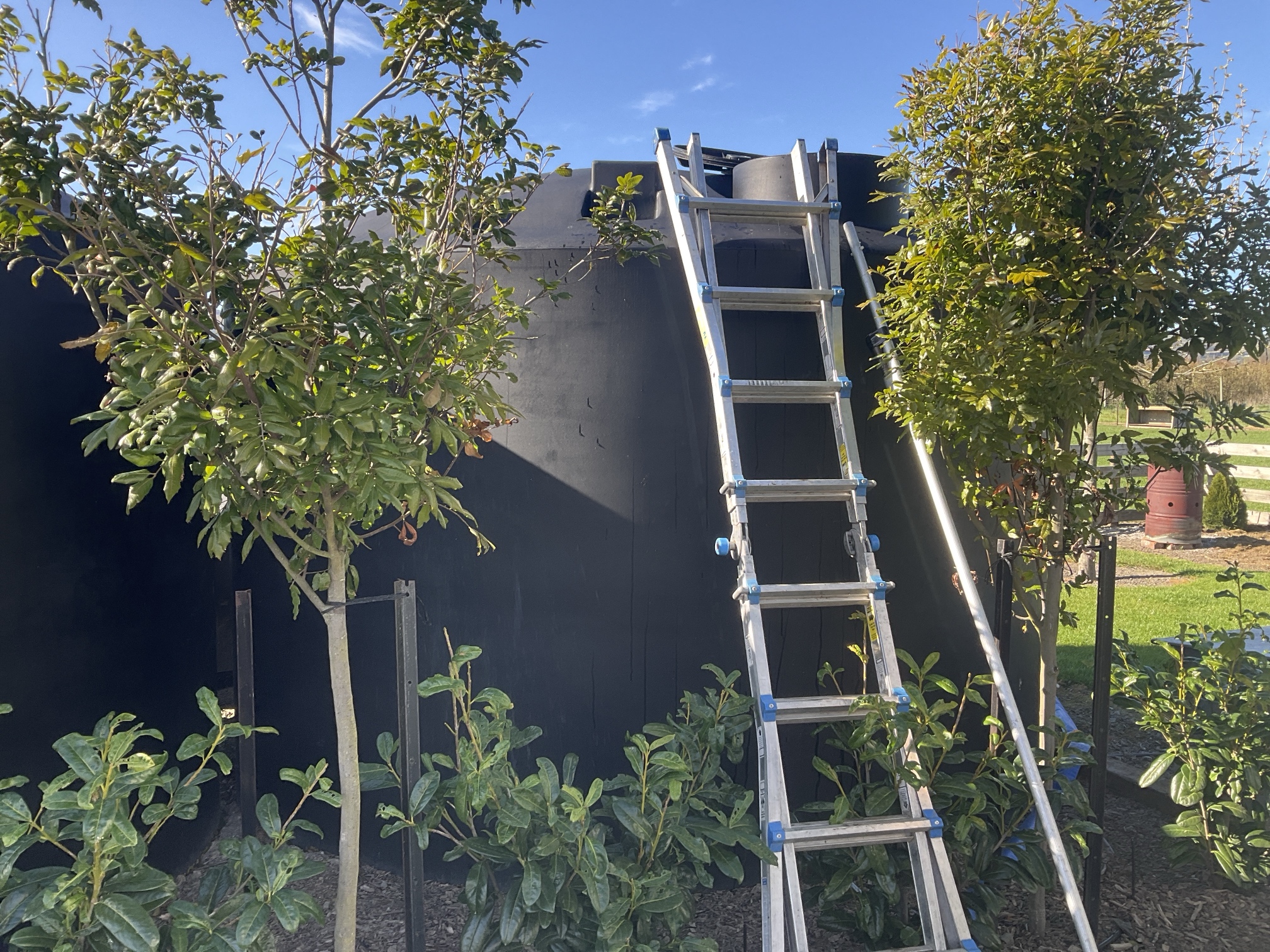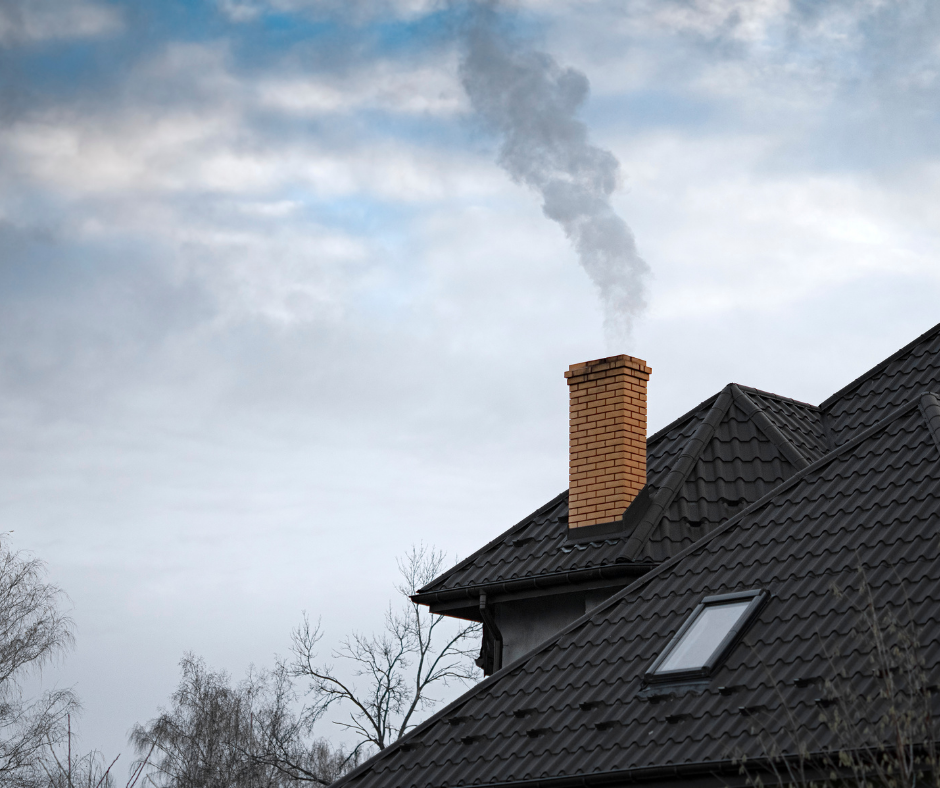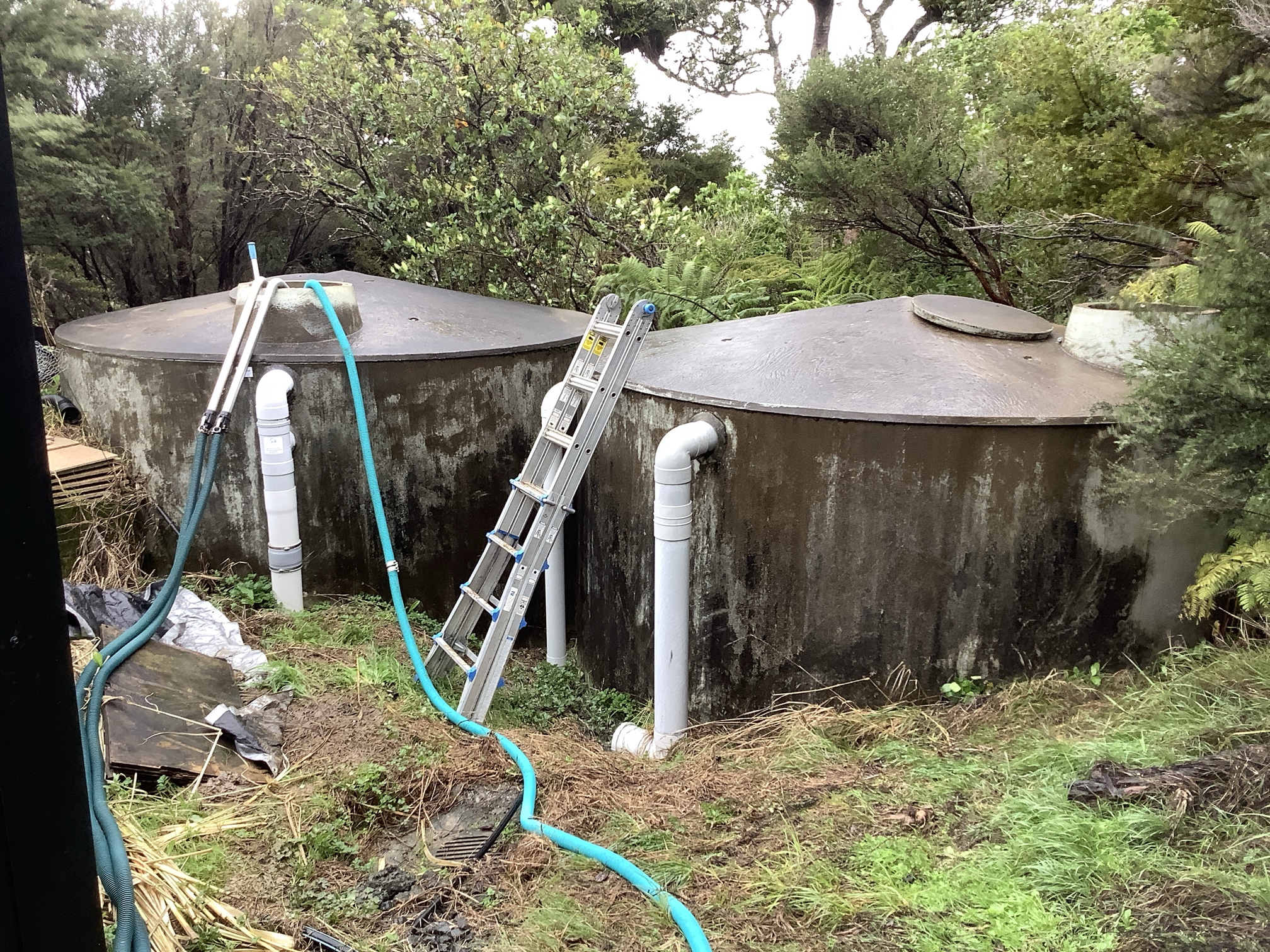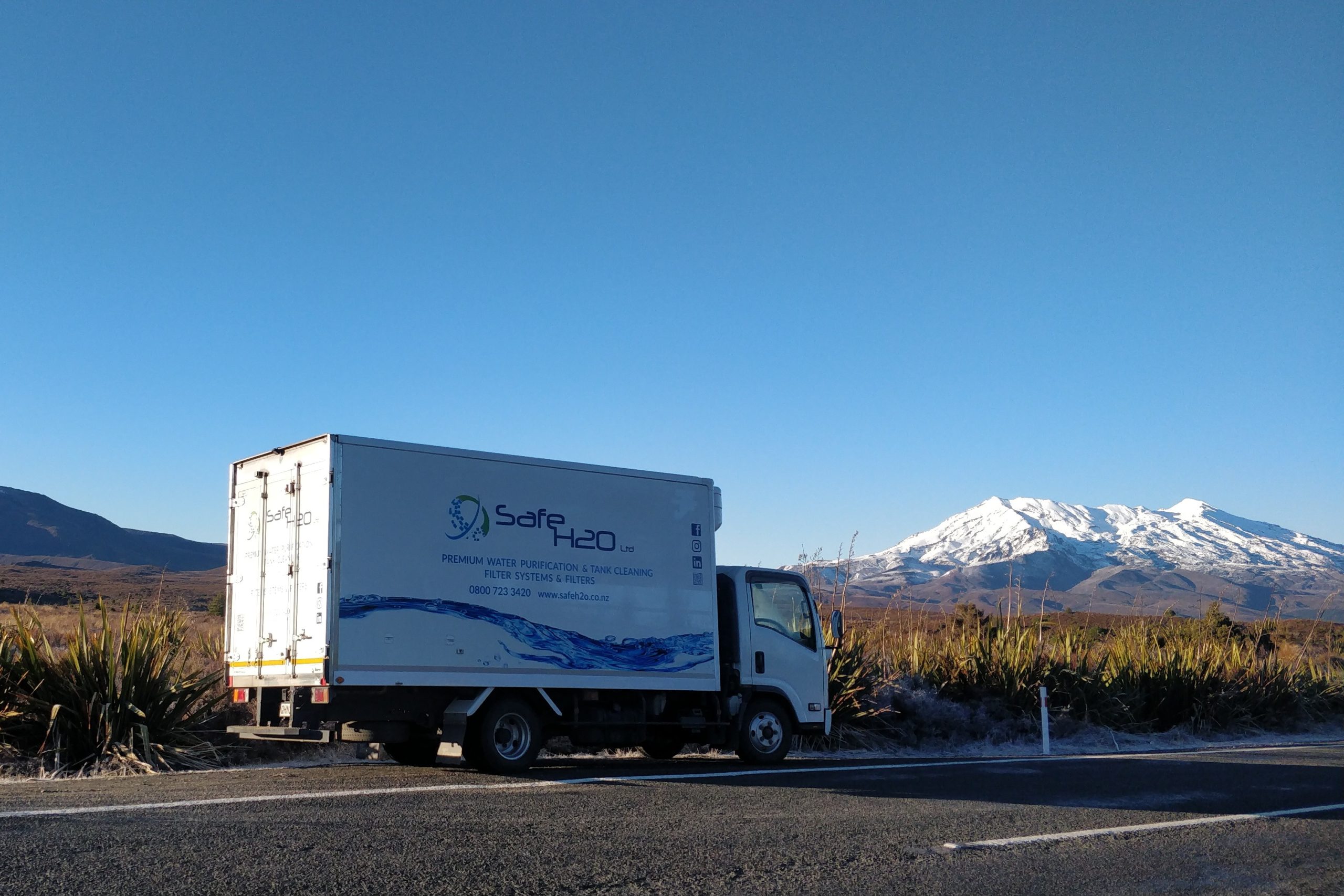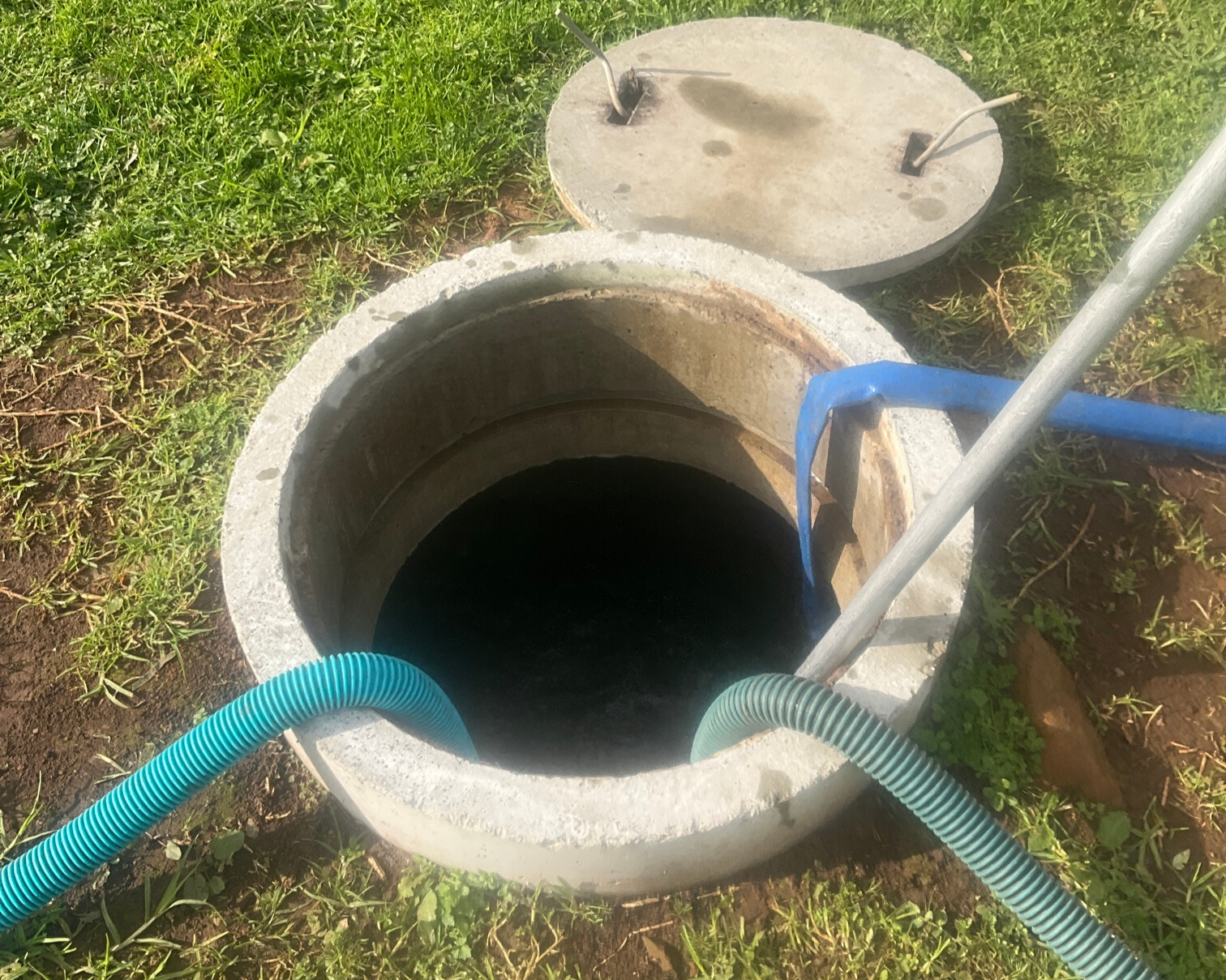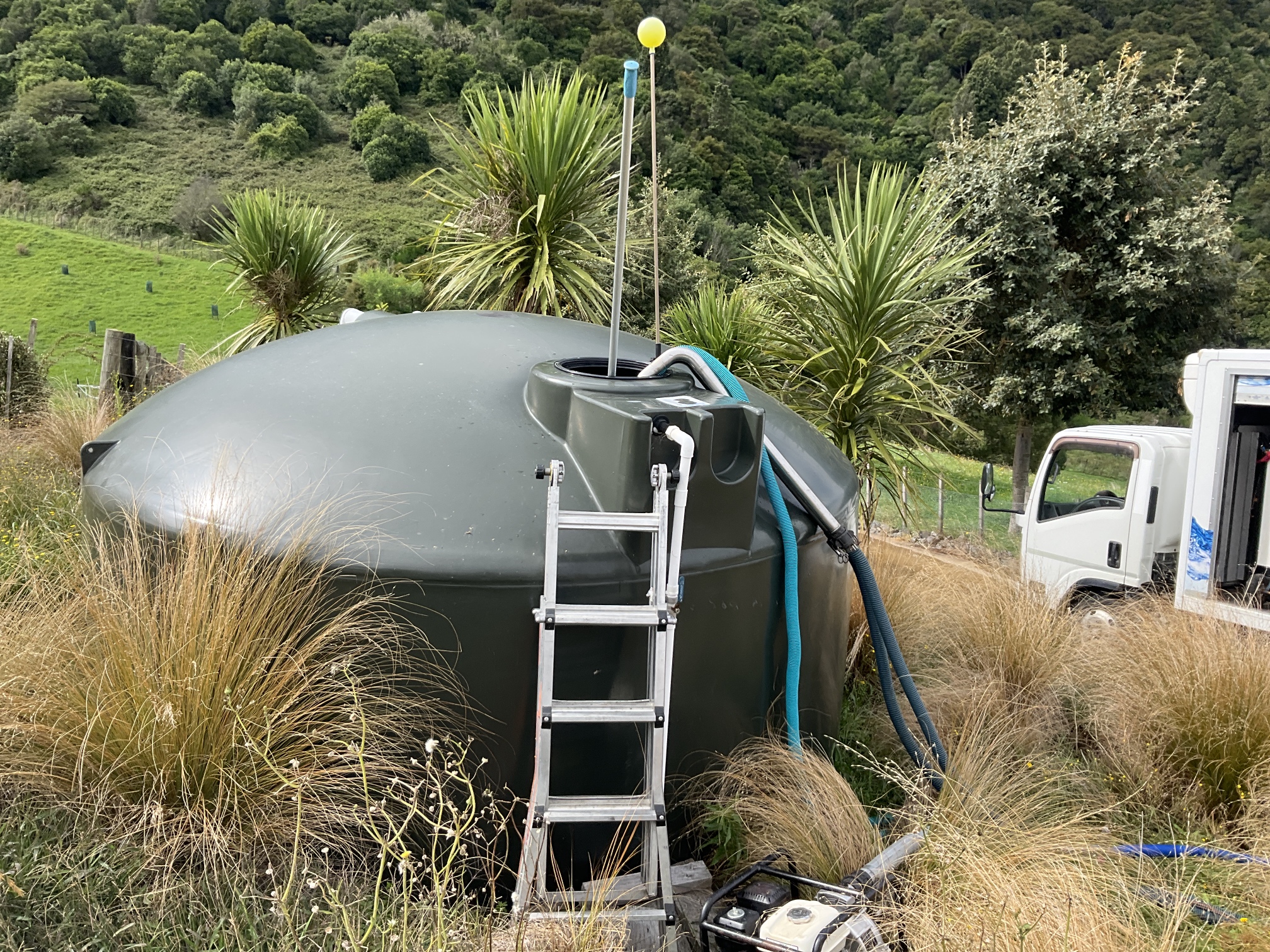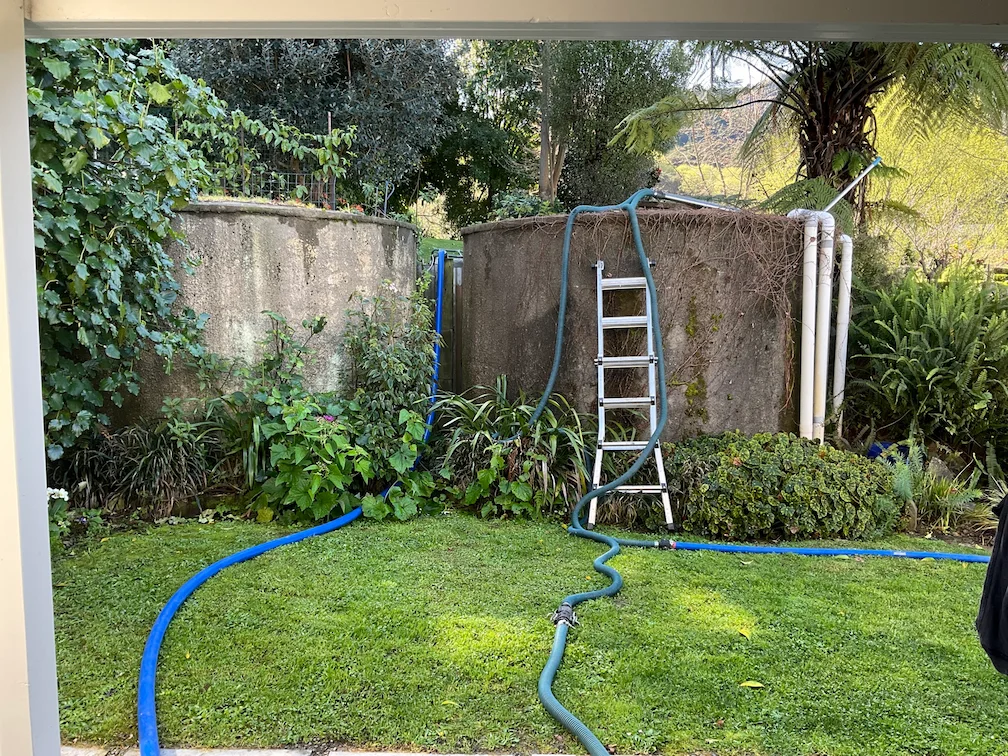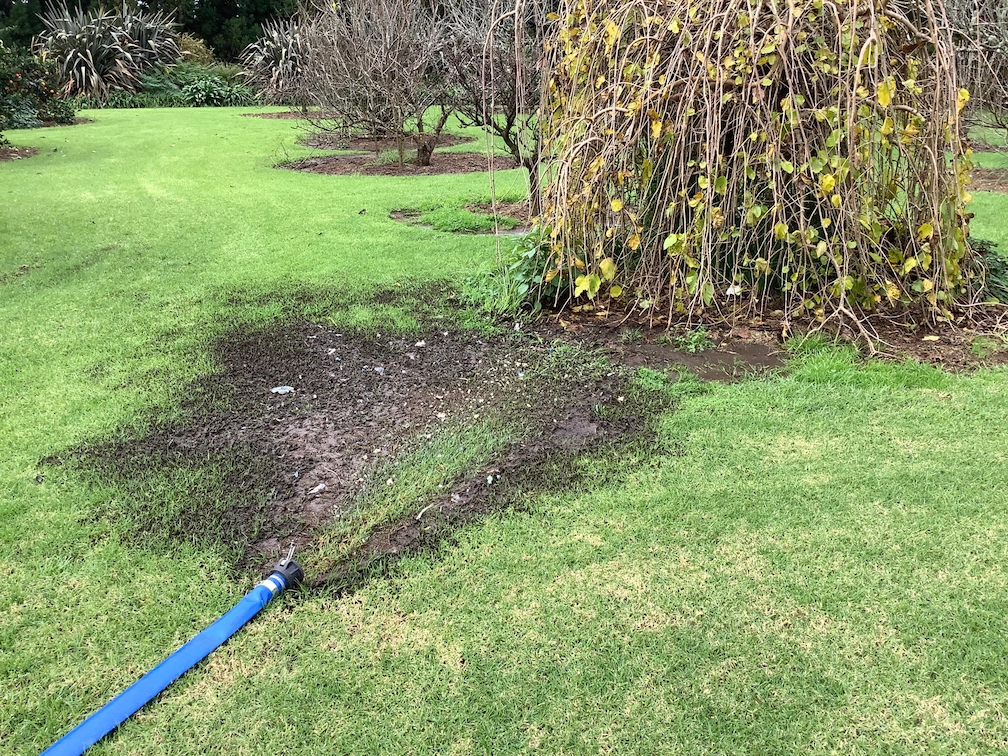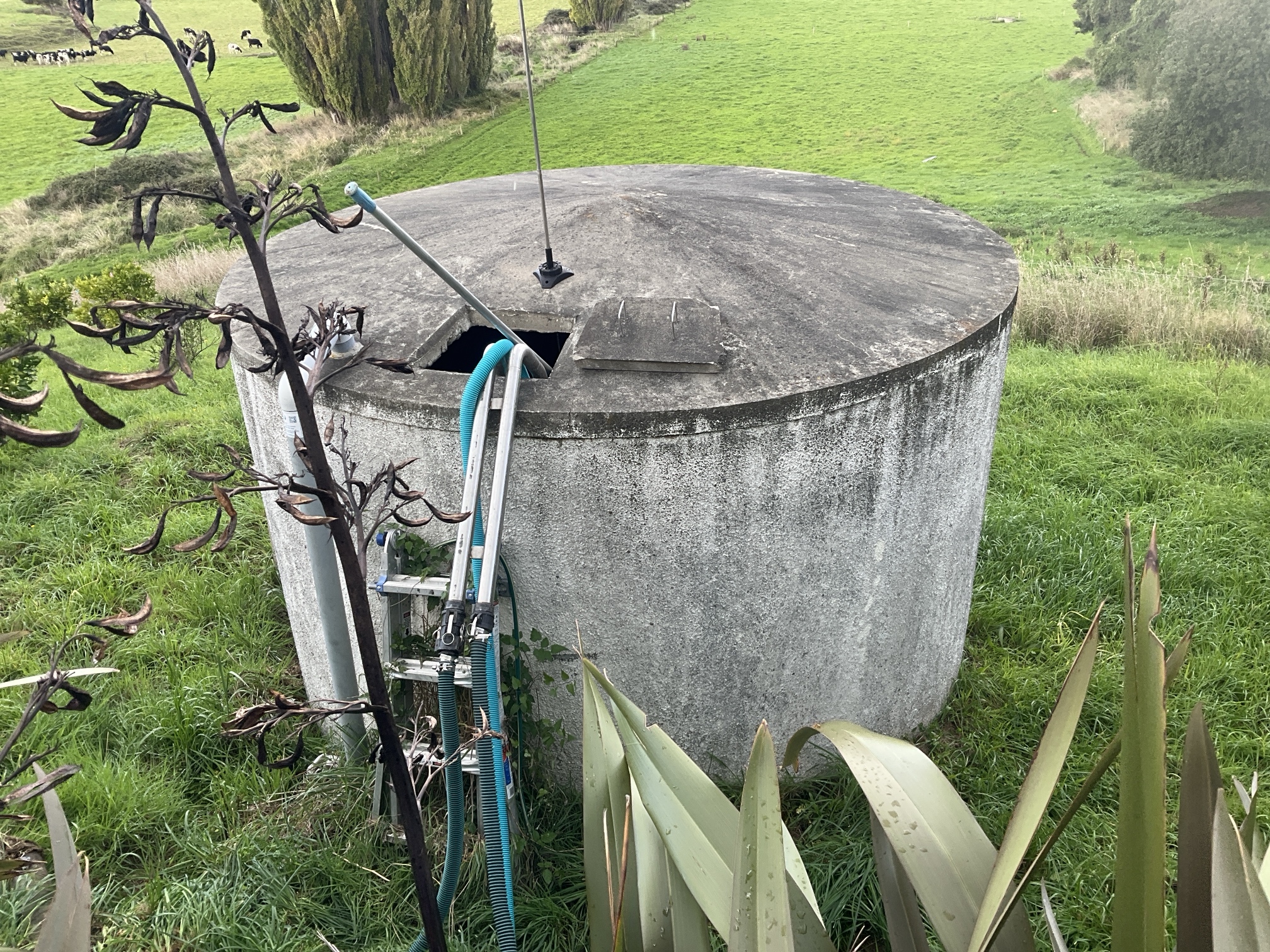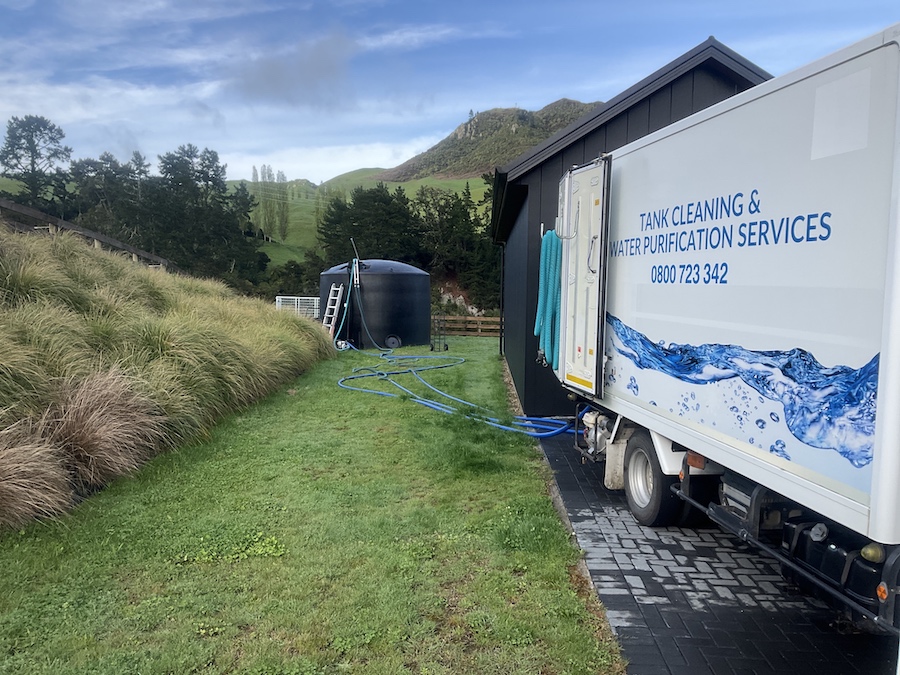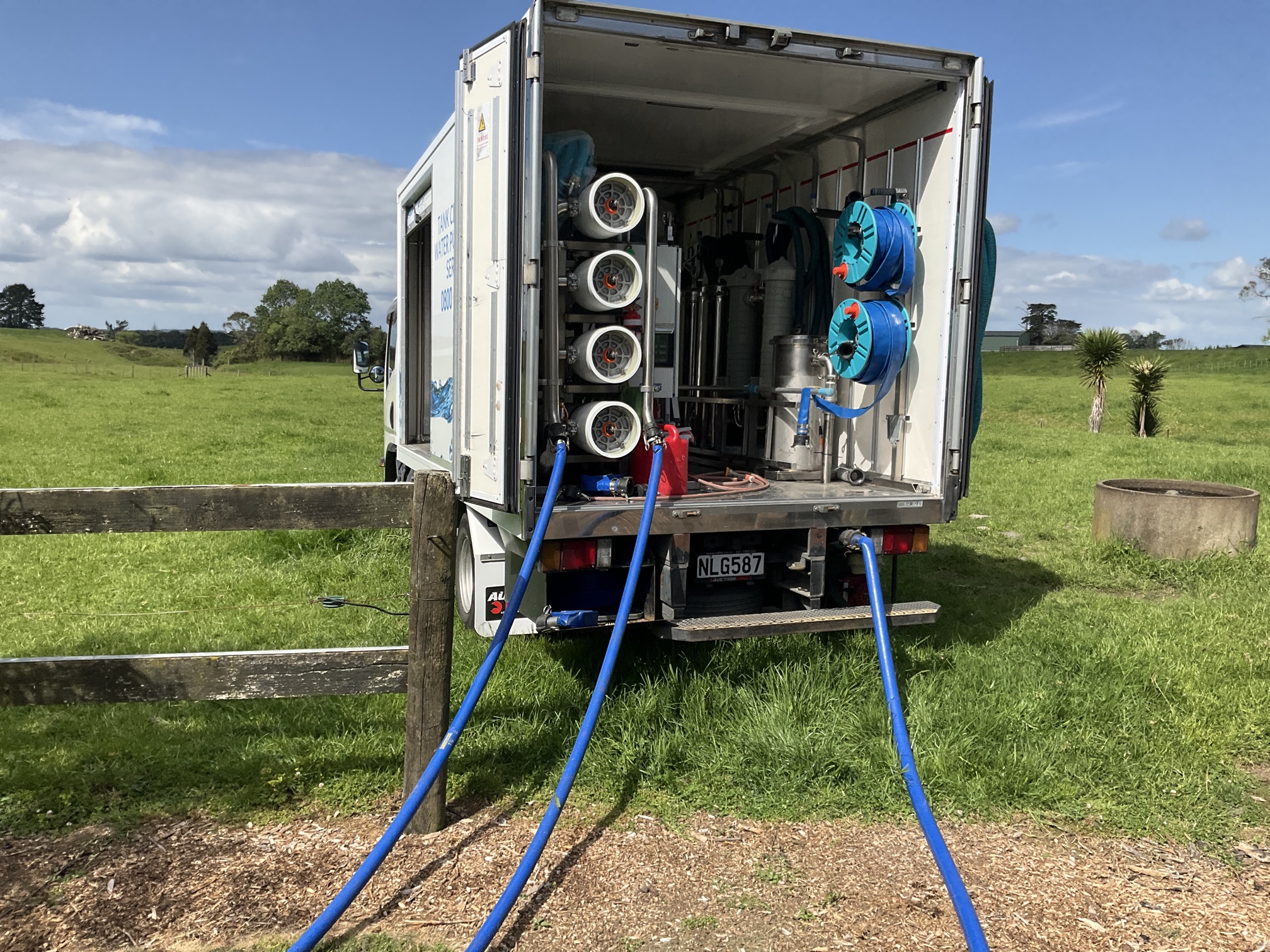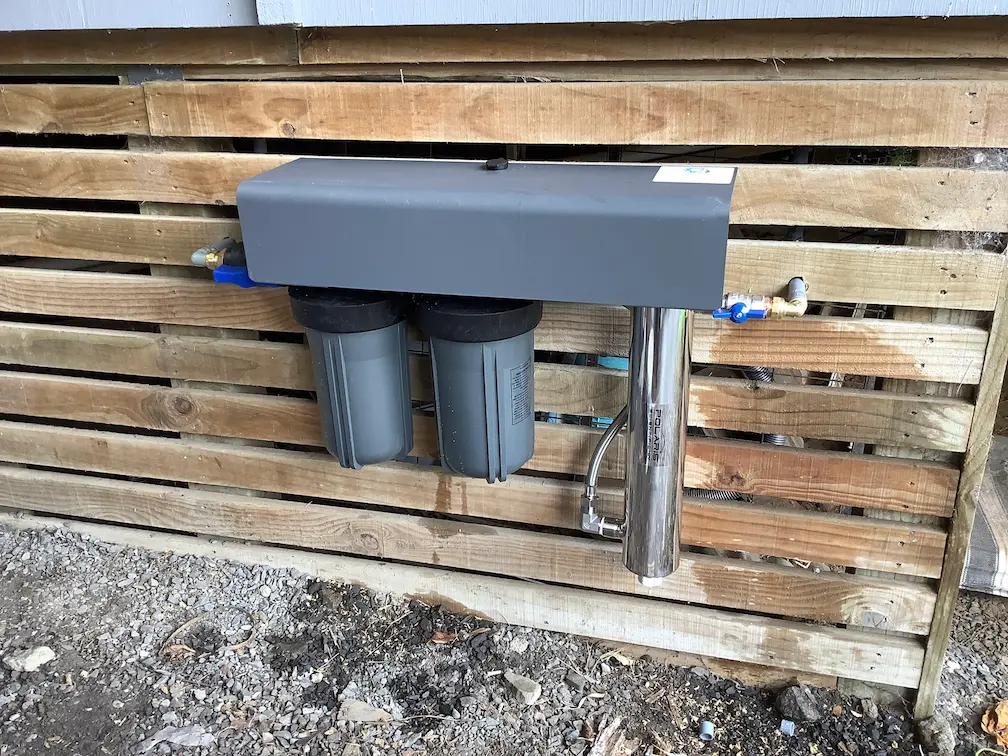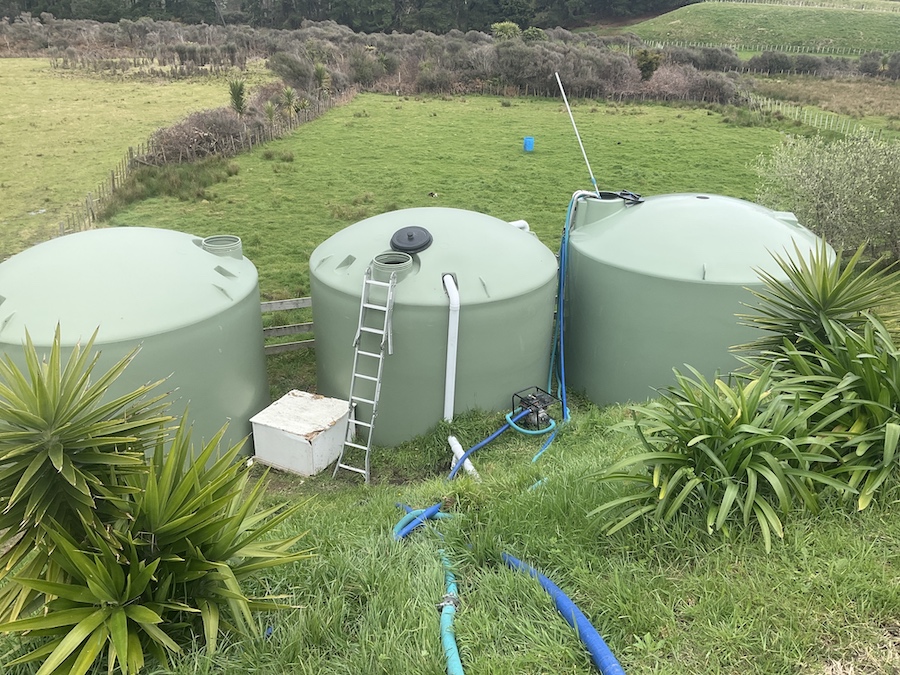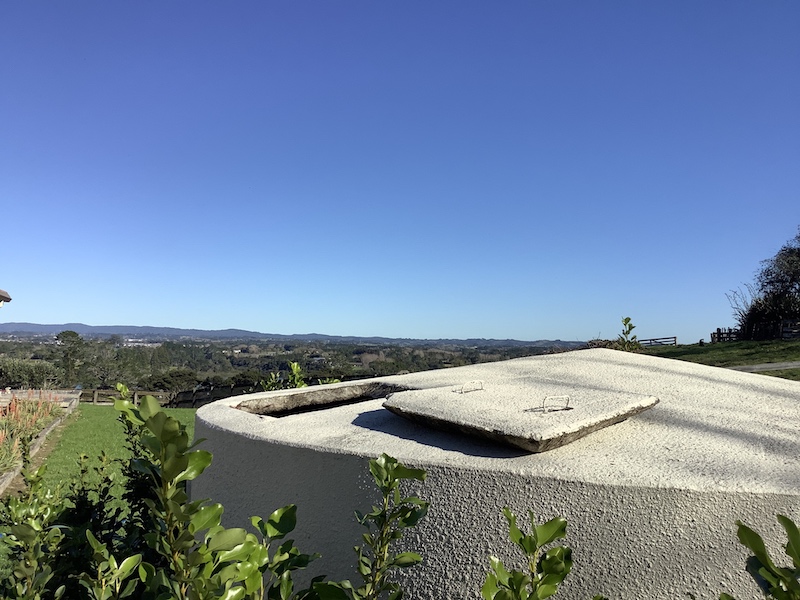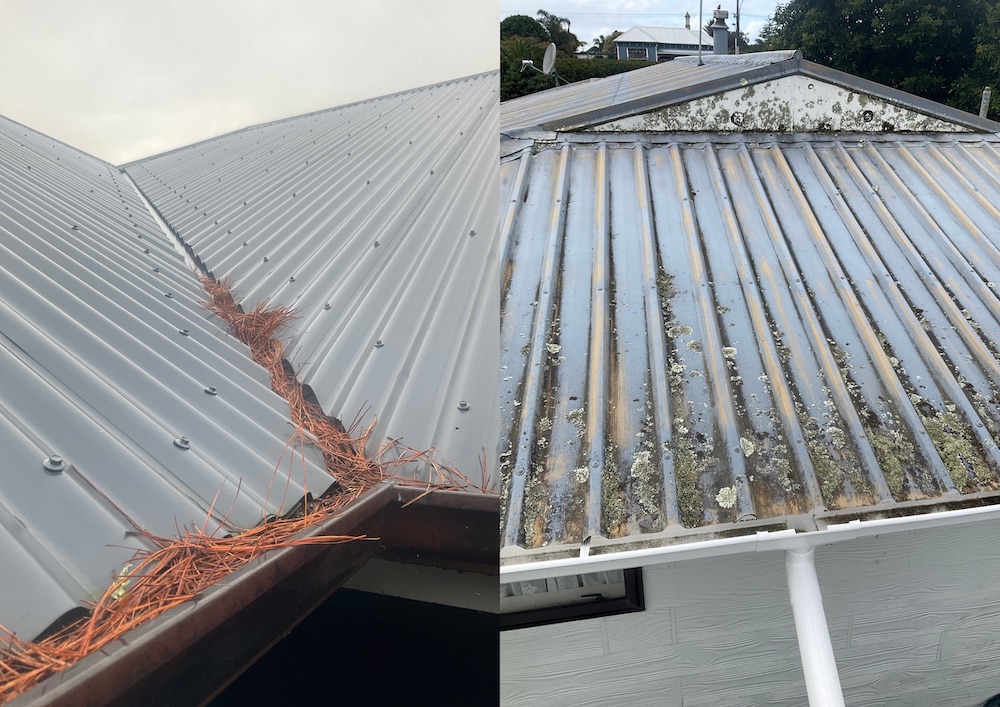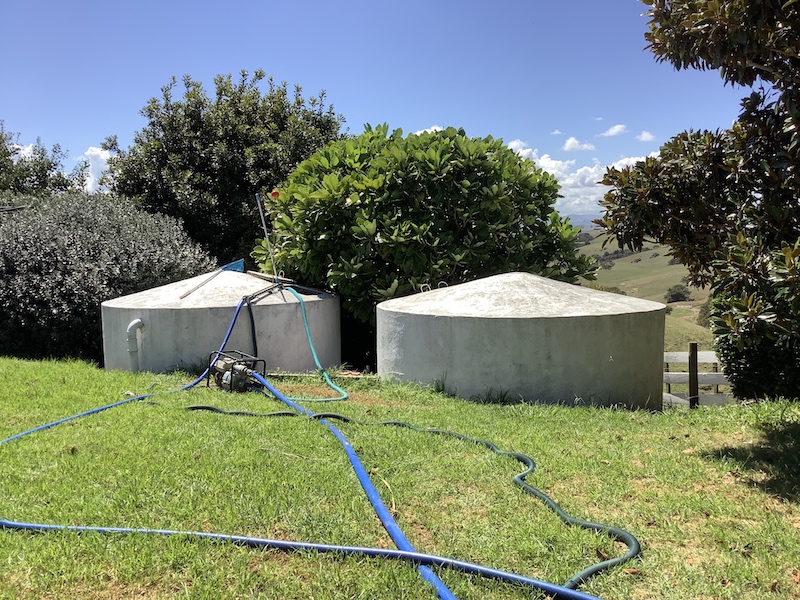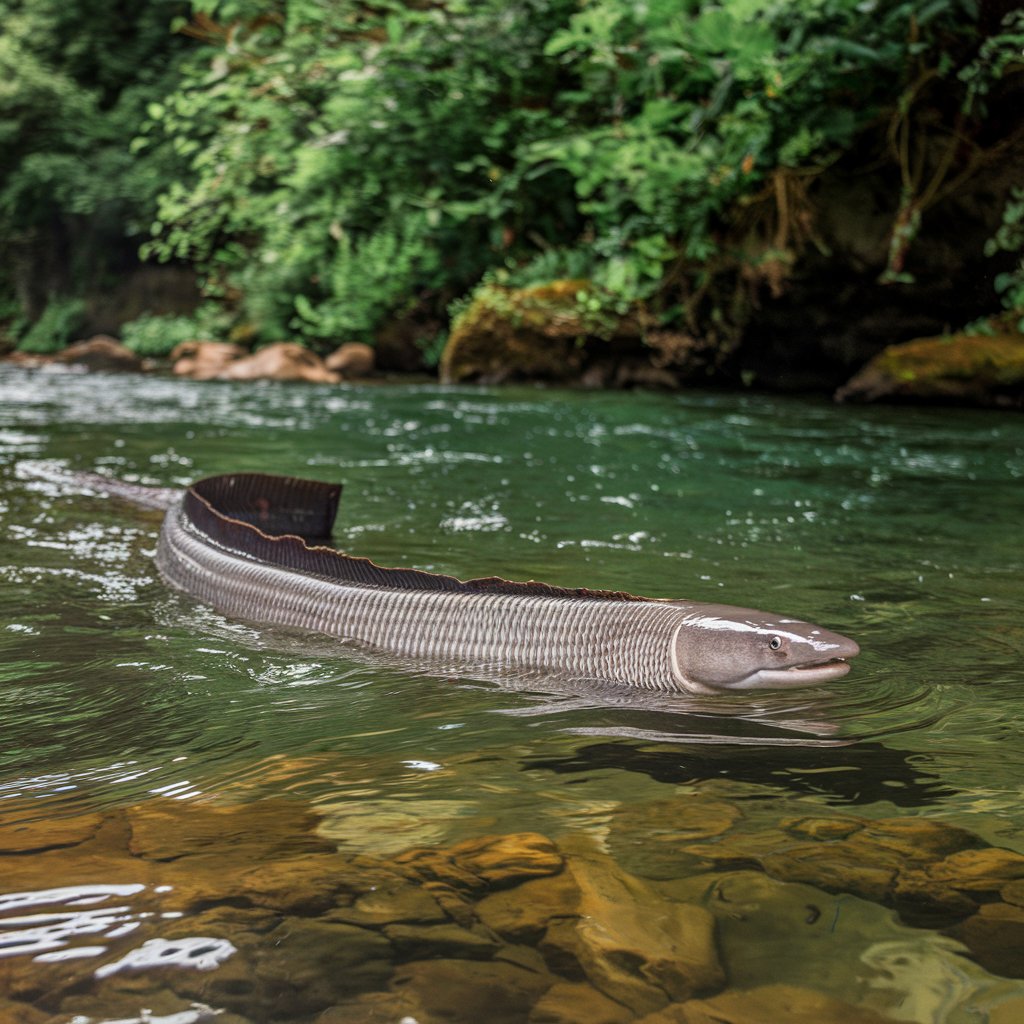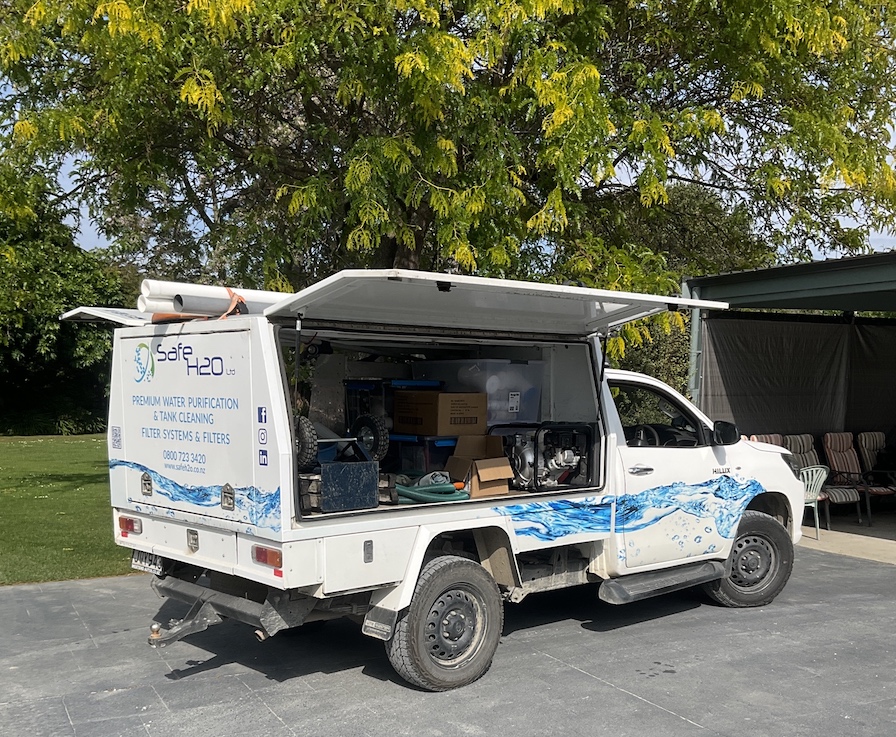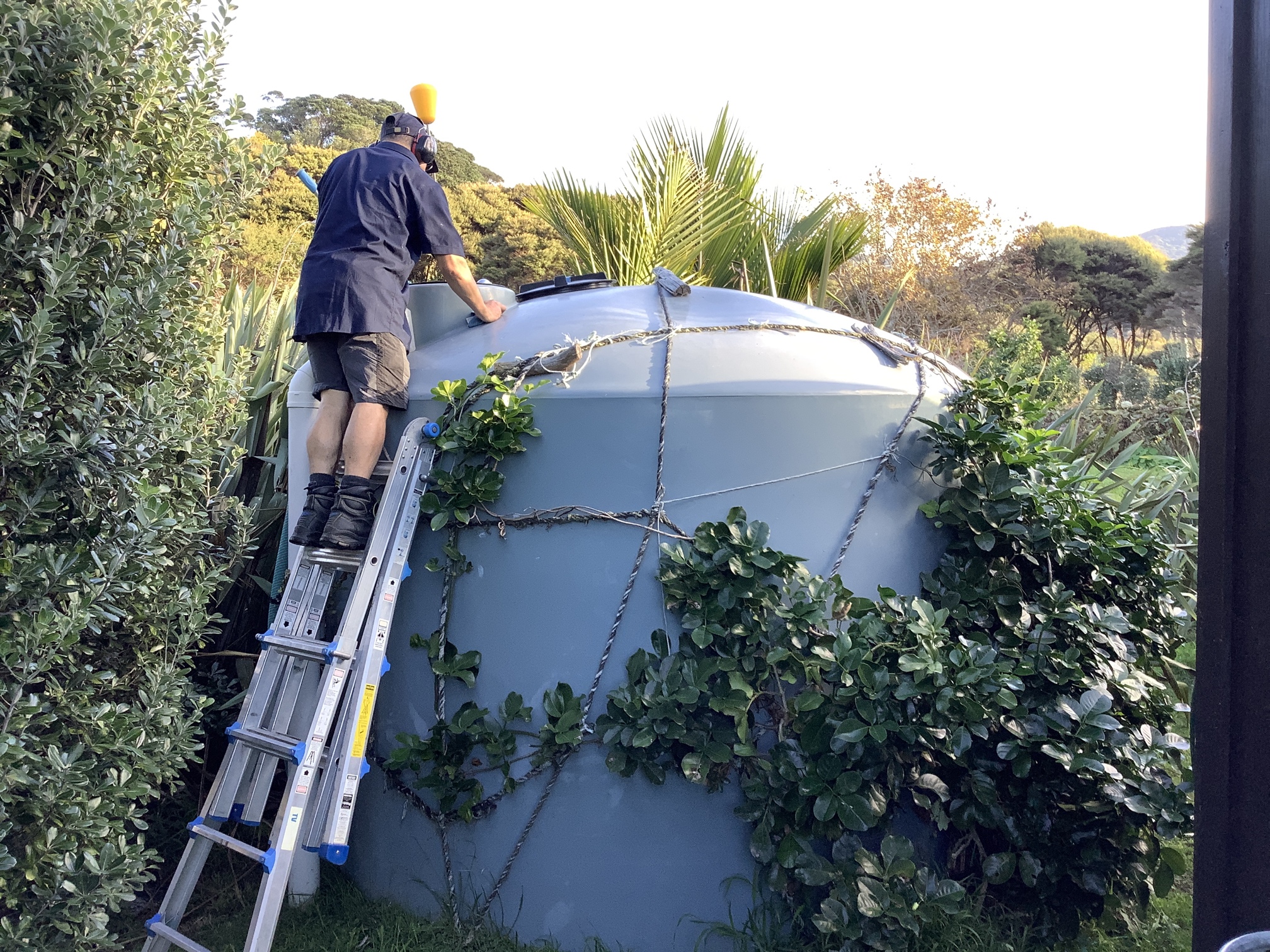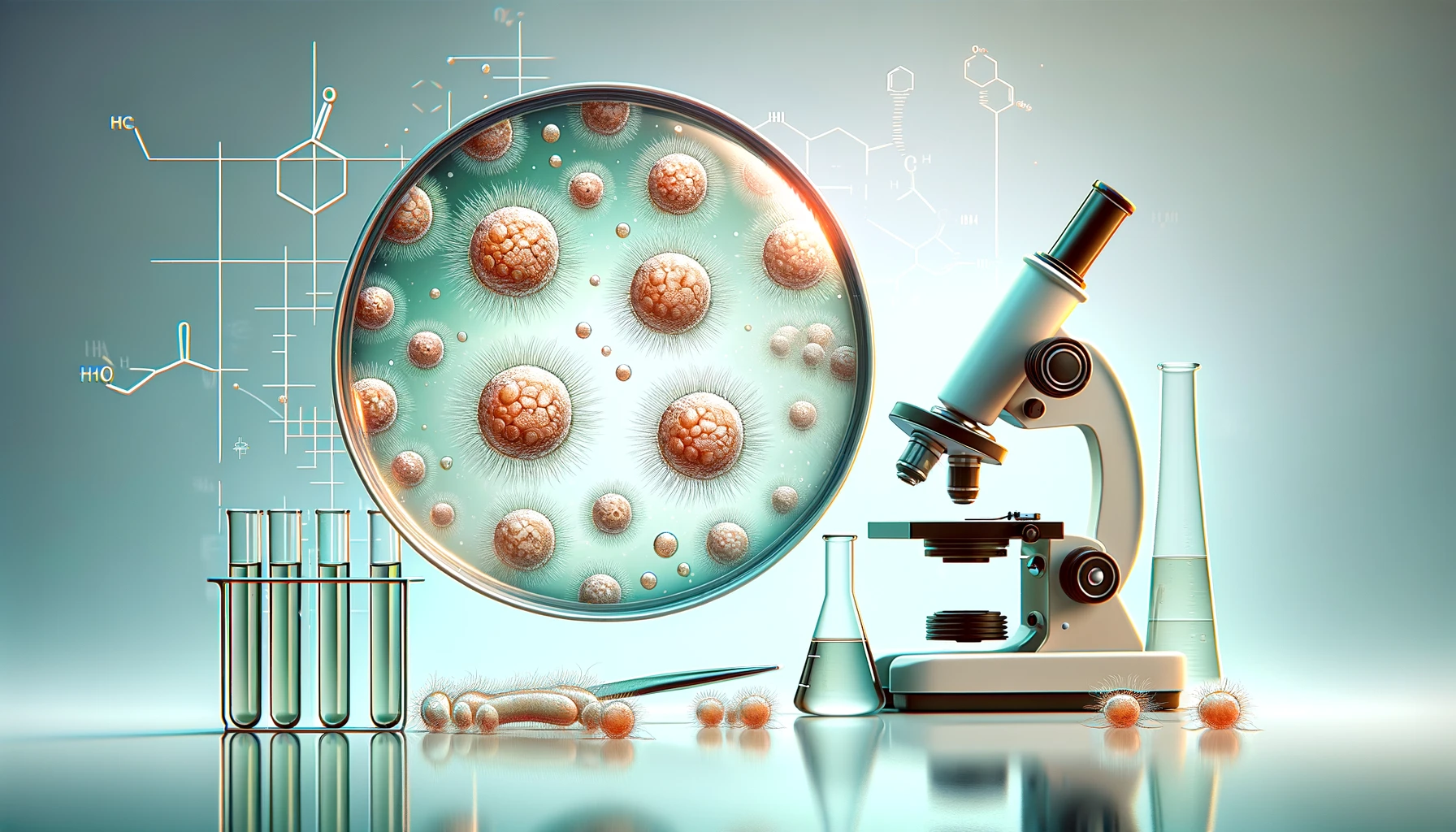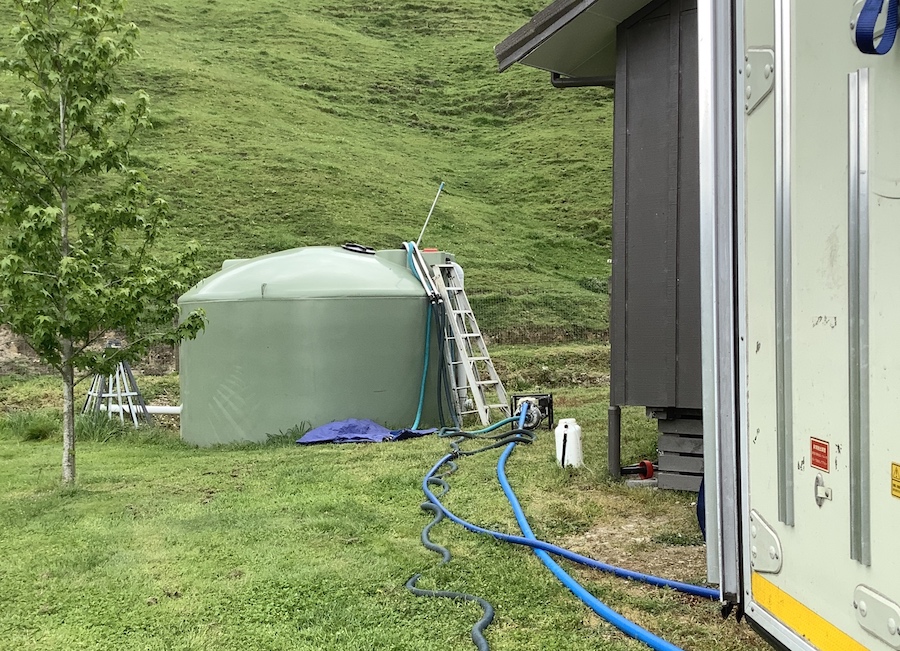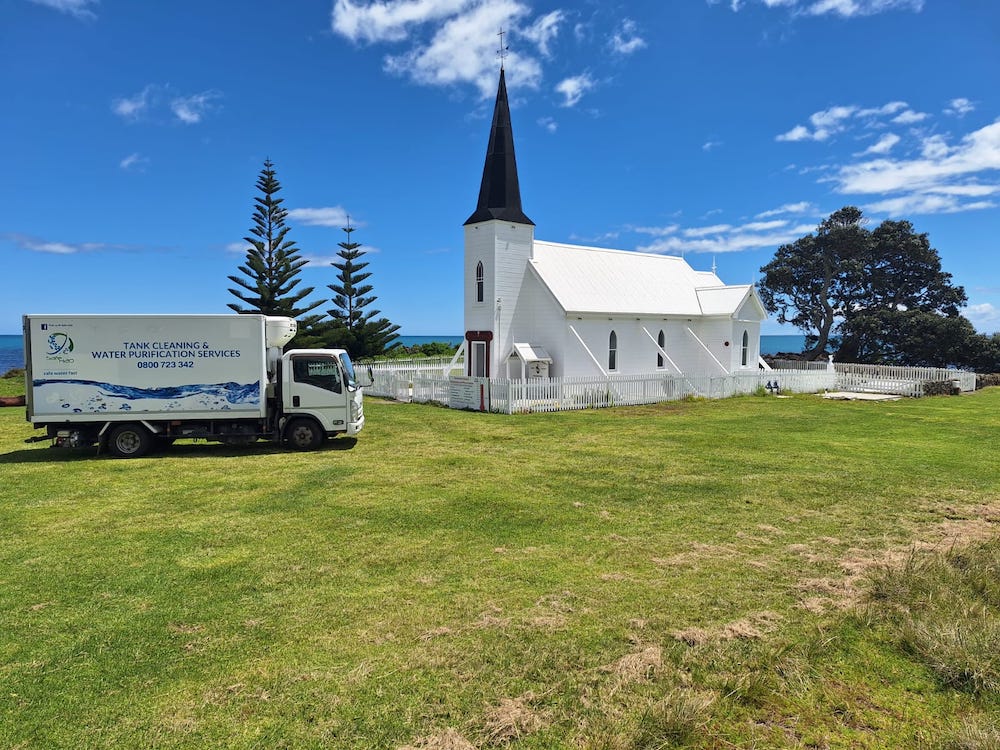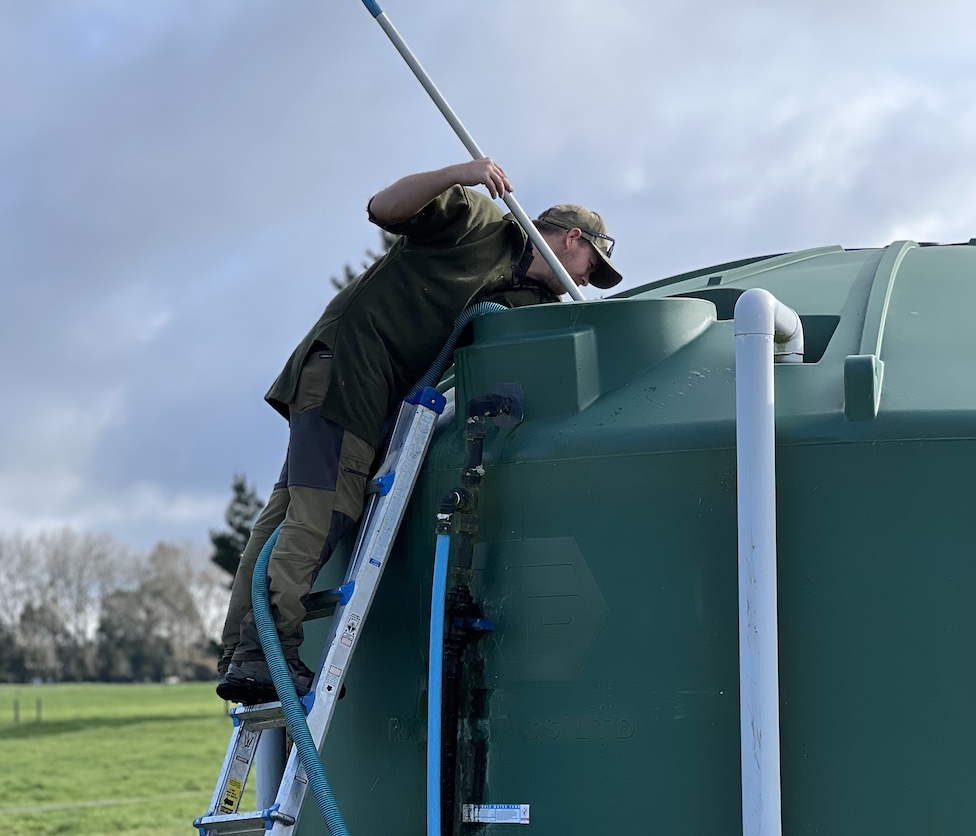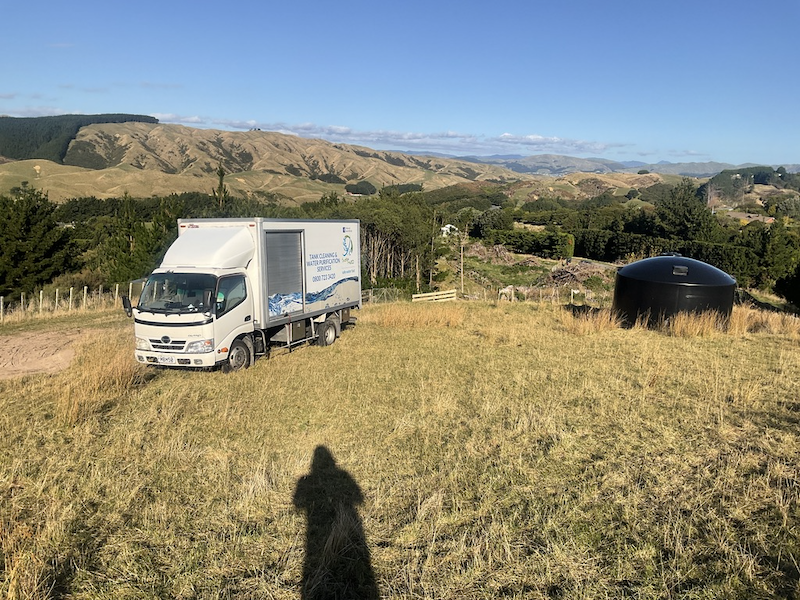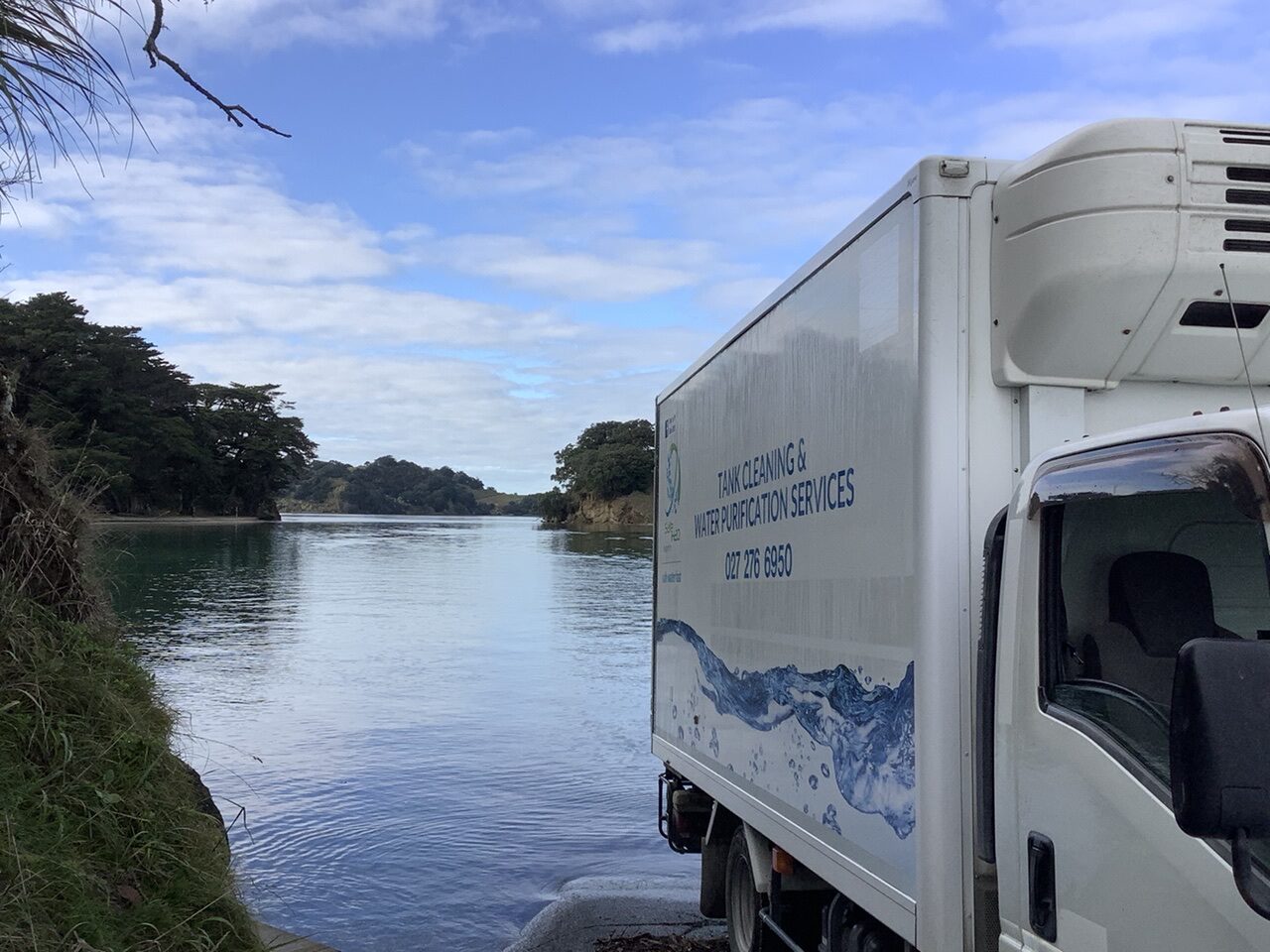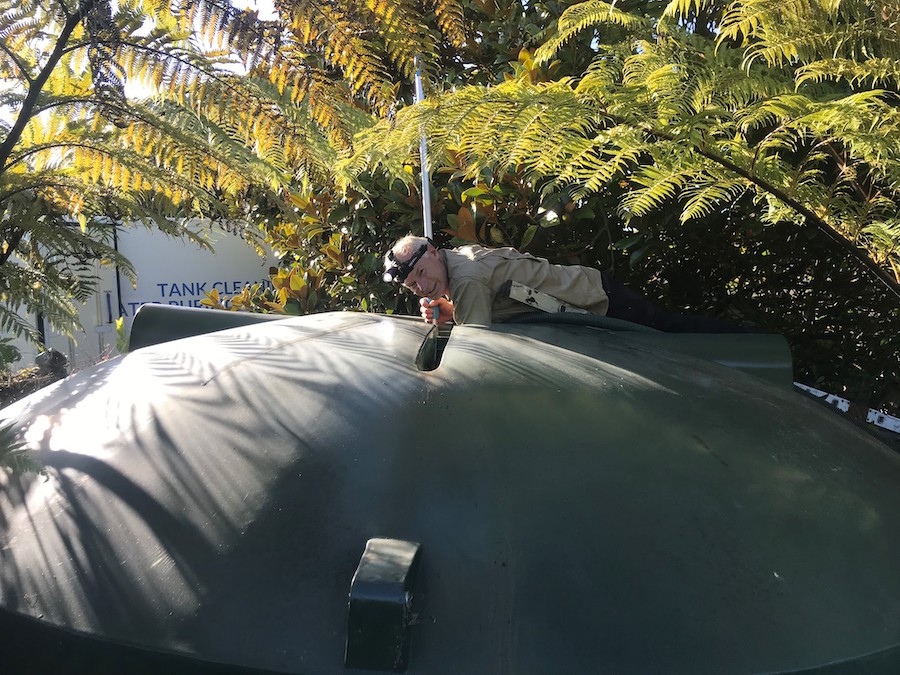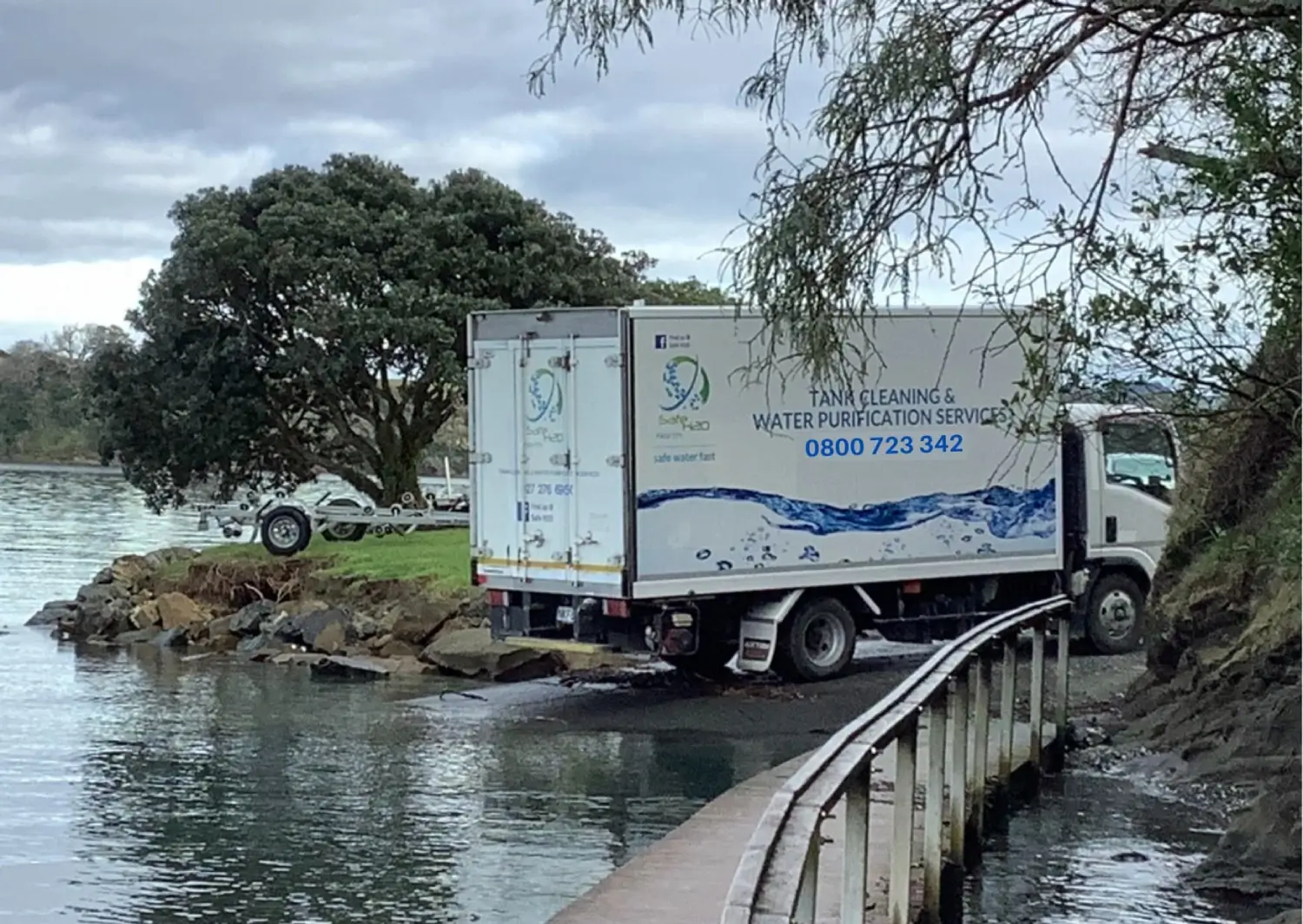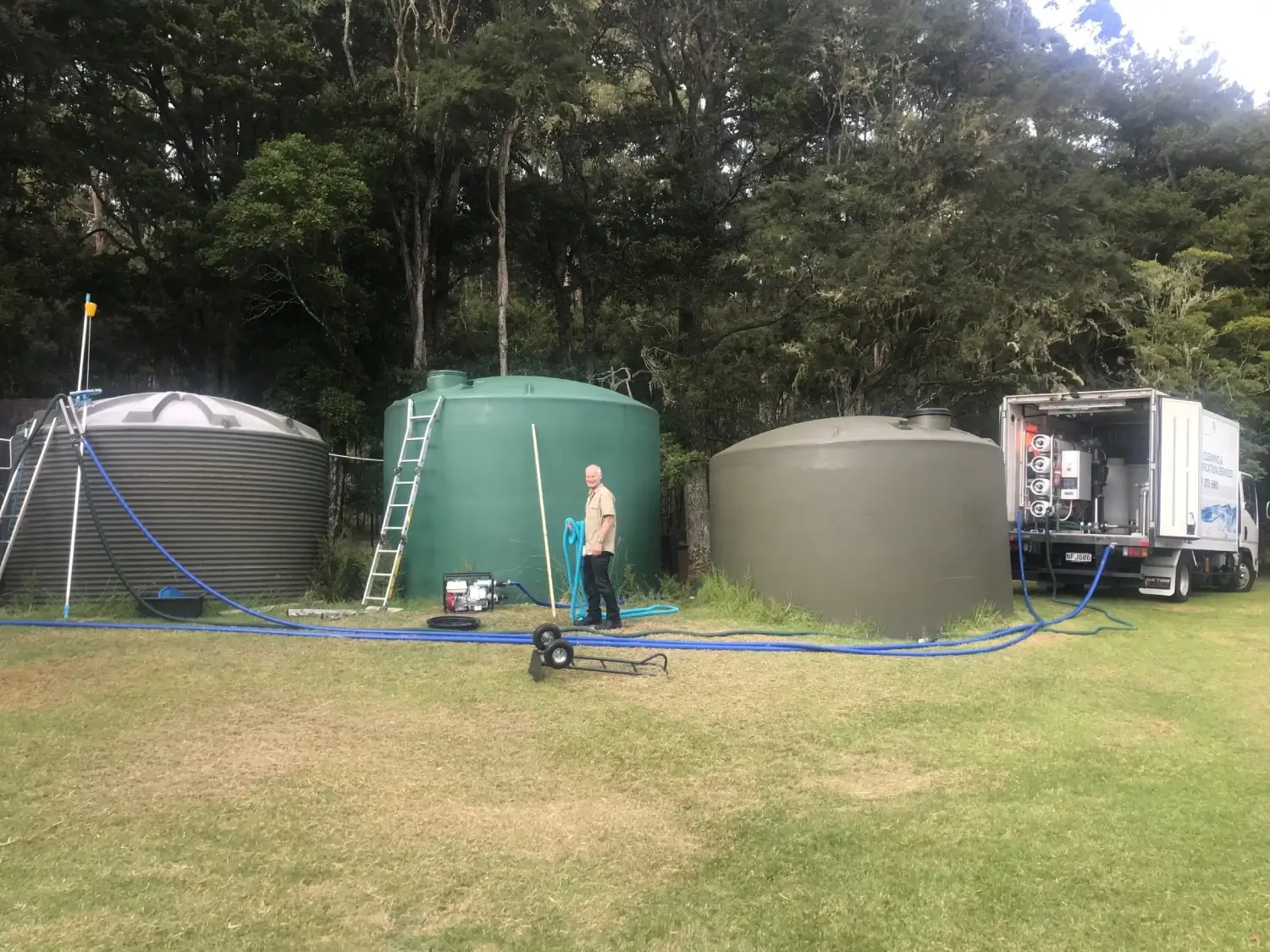What are my Legal Obligations for water tank cleaning in New Zealand?
Taumata Arowai is the new Water Services Regulator for Aotearoa New Zealand from November 2021.
They are committed to ensuring all communities have access to safe and reliable drinking water every day. Guidance and Resources – Taumata Arowai
In Section 6 of the Water Services Act, it says “drinking water means water that is used for human consumption, or oral hygiene or preparing food and drink, washing utensils that are used for eating and drinking, or for preparing, serving, or storing food or drink for human consumption.”
The new Water Services Act 2021 clarifies the definitions of ‘safe’ and ‘potable’ water means:
- It is safe to drink
It complies with the Drinking Water Standards for New Zealand 2022.
Taumata Arowai has introduced various regulations for private water suppliers. In summary, as soon as a water source supplies more than one building to provide potable water, it is a water supply and is subject to some form of regulation. The rule of thumb is that the greater the number of people using the water, (and therefore the number of people at risk should anything go wrong with the supply) the greater the water treatment requirements.
The actual legal obligation to clean your water tank depends on the type of property involved and water use – read on to find out the regulations for your situation.
Private dwelling
In your own private dwelling, you are responsible for your own water supply and there is no legal obligation to meet any minimum standard of care. While there is no legal obligation, there is good practice to help protect you and your whanau. The recommendation to clean water tanks at least every two years is our expert guidance for you and your family. We also recommend UV + Sediment filtration.
Landlord – single dwelling
As a landlord you have a legal responsibility to provide potable water to your tenants. Rainwater is considered potable. However, this does not consider the surfaces the water contacts before being consumed.
There is case law where landlords have been prosecuted for not providing clean and safe water and were instructed to clean the tank and install UV filtration. This is an extreme no one would wish to reach. It seems common-sense to follow the good practice of regularly cleaning your water tanks and installing UV filtration to ensure you are providing safe and clean water to your tenants.
Landlord – multiple dwellings e.g. larger farms with tenanted houses (including employees)
If your water source is supplying more than one dwelling then you are likely to be considered a small water supply under the auspices of the water regulator, Taumata Arowai.
In short, this means you need to develop and implement a water safety management plan complete with pre-tank preventative measures, and regular tank cleaning combined with an appropriate UV filtration system. You need to implement the plan and maintain records to show your compliance. The level of regulation changes depending on the number of people using the supply and water source. Safe H2O would be happy to provide more detailed guidance specific to your circumstances at any time.
Commercial uses
If you are using rainfed water for preparing and serving food and beverages, you must ensure your water is always safe. This means meeting food hygiene requirements including developing and implementing a water safety management plan complete with pre-tank preventative measures, and regular tank cleaning combined with an appropriate UV filtration system. You need to implement the plan and maintain records to show your compliance. Again, the Safe H2O team would be happy to provide more detailed guidance specific to your circumstances at any time.
Schools, Marae, Community Facilities
As the users of the water at such facilities can be a significant number of people, you are required by the water regulator, Taumata Arowai, to develop and implement a water safety management plan and implement measures to ensure clean and safe water for all users.
This will include pre-tank preventative measures, and regular tank cleaning combined with a validated UV filtration system.
You need to implement the plan and maintain records to show your compliance. Safe H2O would be happy to provide more detailed guidance specific to your circumstances at any time.
Timelines
Taumata Arowai has introduced regulations for private water suppliers. All unregistered private water supplies are required to be registered with Taumata Arowai by November 2028 and be fully compliant by November 2030. Those already registered (prior to 2022) must have submitted their Drinking Water Safety Plan (WSP) by November 2022.
Please contact Hamish at [email protected] if you are interested in more information.
If your household water supply comes from a bore, spring, or stream, it’s essential to understand your water chemistry.
If your household water supply comes from a bore, spring, or stream, it’s essential to understand your water chemistry.
Concerned about nitrates in your water, and want to know how to get rid of them?
In this blog, we'll explore these frequent water tank problems and provide practical solutions to address them effectively
Smoke and soot can contaminate NZ water tanks. Learn how it happens, the health risks, and Safe H2O’s expert tips for cleaning and prevention.
This comprehensive guide examines the benefits and drawbacks of DIY and professional water tank cleaning, enabling you to make the best choice for your home.
Winter’s cooler weather might not have you thinking about your water tank - but it should.
Whether you’re collecting rainwater, drawing from a bore, or tapping into a stream, your water tank is the heart of your...
Whether you’re collecting rainwater, drawing from a bore, or tapping into a stream, your water tank is the heart of your...
How Possums, Rodents, and Birds Get into Your Water Tank – and How to Keep Them Out When thinking about water quality, …
What’s in Your Water? Common Contaminants in NZ Drinking Water Tanks Whether your water comes from rainfall, a bore or a nearby …
Water Tank Cleaning Myths Debunked When it comes to maintaining clean and safe water in your tank, there can be a bit …
Autumn Water Tank Care Tips: Preparing for the Seasonal Change As the crisp air of autumn rolls in, it’s time to think …
Water Tank Cleaning: A Comparison of Traditional vs. Our Innovative Method When it comes to cleaning your water tank, Safe H2O cleans …
UNDERSTANDING FILTRATION SYSTEMS: WHAT IS SEDIMENT AND UV WATER FILTRATION? Your water source likely contains a myriad of sediments and particles, ranging …
Water Tanks 101: A Beginner’s Guide to Clean, Safe Water for Your Property Water tanks are an essential resource for those on …
What can I do before water enters my tank to help minimise my risks? Spring or surface water (streams) will usually be …
When it comes to maintaining a healthy rainwater fed tank, one of the most overlooked aspects is the cleanliness of your roof and gutters.
Flush Caps, Leaf Diverters, and More: Methods to Help Protect Your Water Supply When it comes to maintaining a clean and safe …
In the realm of curious misconceptions, one fascinating myth suggests that eels clean water tanks. While this idea captures the...
Why having ‘Immunity’ to Bad Tank Water is a Bad Thing When it comes to maintaining a healthy home, clean water is …
Safe H2O Collaborates with Isaac’s Plumbing, Pumping and Electrical Here at Safe H2O, we aim to provide exceptional advice, service, and support …
How Often Do New Zealand Schools Need to Clean Their Water Tanks? Here in NZ, managing water supplies, including water tank maintenance …
What is Cryptosporidium and How to Keep Your Water Safe What is Cryptosporidium? In simple terms, Cryptosporidium is a tiny parasite that …
Why you should use a Water Tank Cleaning Specialist Well maintained water tanks are the backbone of clean water storage and supply …
Guarding Against E. coli: Essential Strategies for Ensuring Safe Water Tank Systems Water tanks are an essential source of clean drinking water …
5 Top Reasons to Keep Your Water Tank Clean in New Zealand Cleaning your water tanks is something that’s probably not always …
Autumn Alert: Why Now is the Perfect Time to Clean Your Water Tank As the autumn leaves are about to fall and …
What are my Legal Obligations for water tank cleaning in New Zealand? Taumata Arowai is the new Water Services Regulator for Aotearoa …
Top signs your water tank needs cleaning – Don’t ignore these red flags Your water tank is a vital component of your …
How Often Should I Clean My Water Tank in New Zealand? If you are one of the thousands of New Zealanders with …
The Risks of Cleaning Your Water Tank with Janola or Household Bleach Should you use Janola to clean your water tank? Here …
12 Ways to Save Your Tank Water Worried about your water tanks running empty? Rainfed tank water is a limited supply and …
How much does it cost to clean my water tank? The cost of cleaning a typical New Zealand water tank depends on …



